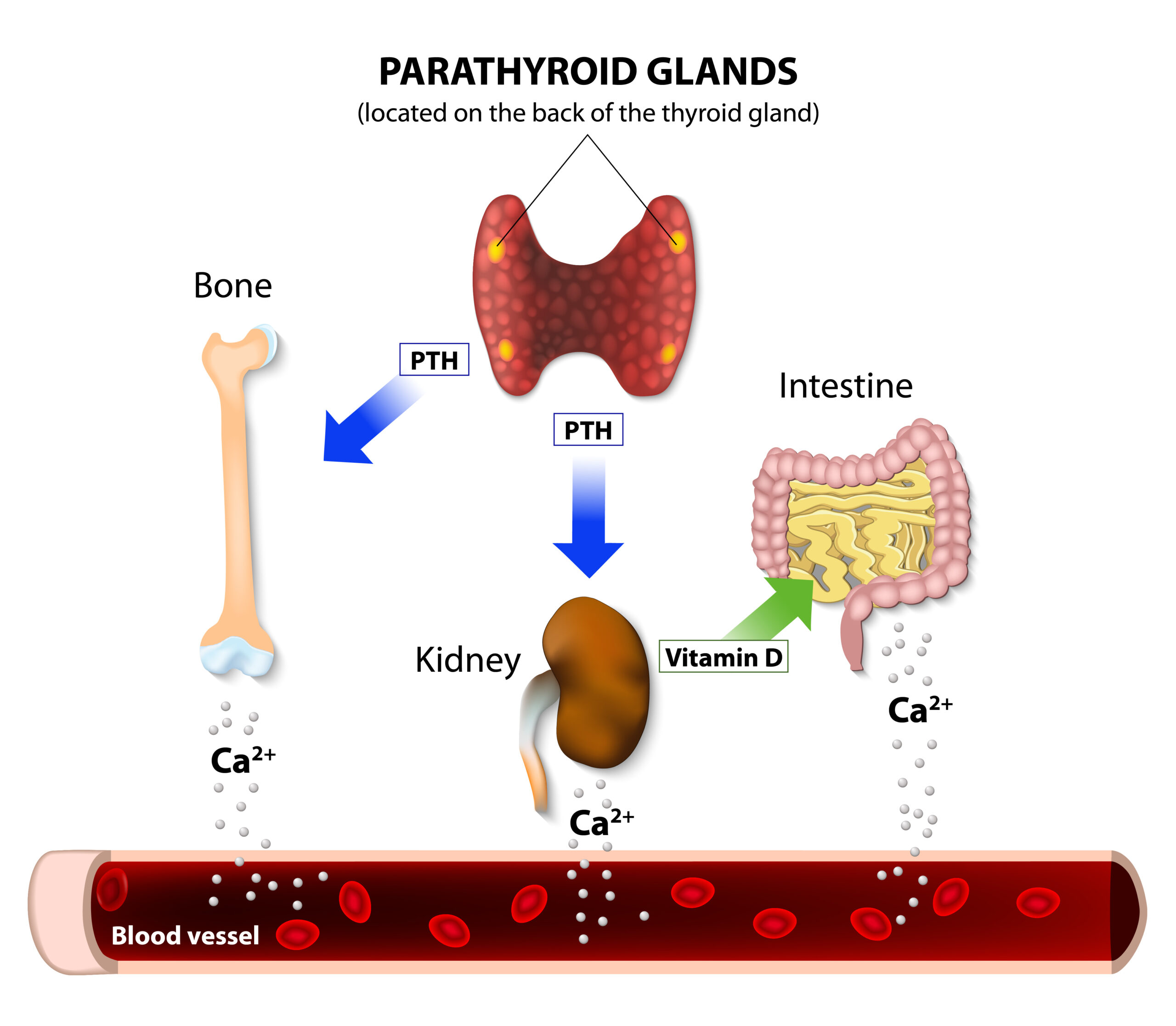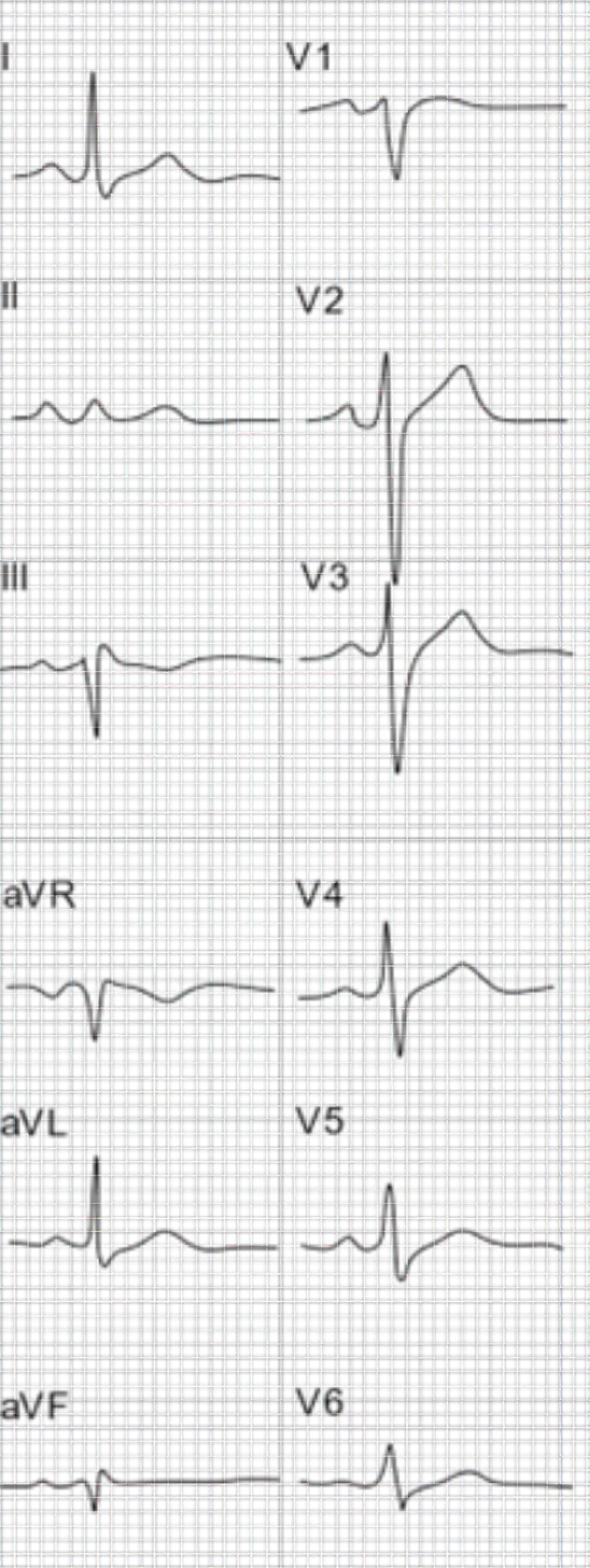Hypercalcemia
Hypercalcemia
An increase in the amount of calcium entering the systemic circulation, a decrease in the excretion of calcium in the urine, and the deposition of calcium into bone are causes of hypercalcemia.
Primary hyperparathyroidism, malignancy of the parathyroid gland, and acute or chronic renal failure are also common causes of hypercalcemia. Primary hyperparathyroidism increases bone resorption, calcium reabsorption in the renal tubules, and the renal synthesis of calcitriol. Primary hyperparathyroidism also causes increased absorption of calcium in the gastrointestinal tract.

Hormonal Regulation of Calcium
ECG changes appear in moderate to severe hypercalcemia. The changes include a shortened QT interval with a shortened or absent ST segment. Modern electrocardiograms can measure and report QTc time to alert the healthcare provider of hypercalcemia. However, ECG findings of hypercalcemia are not common, and often the ECG for these patients looks like a normal sinus rhythm.
Case 4

Patient With Primary Hyperparathyroidism ECG
The ECG above was taken from a patient with primary hyperparathyroidism and hypercalcemia (Ca+2 = 3.1 mmol/L). The patient has a sinus rhythm with a regular rate. A short QT interval of 360 milliseconds is noted, along with an absent ST segment. The ECG machine measures the QTc at 363 milliseconds.